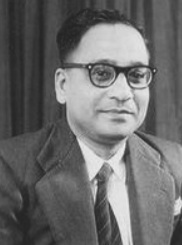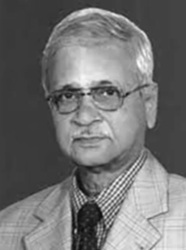Feb 24, 2026
Feb 24, 2026
A Tale of Science, Sacrifice & Unsung Heroes
 In 1959, in a modest laboratory in Calcutta, Dr. Shambhunath De uncovered the real killer behind cholera: not the Vibrio cholerae bacterium alone, but the toxin it secretes.
In 1959, in a modest laboratory in Calcutta, Dr. Shambhunath De uncovered the real killer behind cholera: not the Vibrio cholerae bacterium alone, but the toxin it secretes.
His groundbreaking experiment using bacteria-free culture filtrates delivered a shock to prevailing medical wisdom. He proved conclusively in a rabbit intestinal model what others had only speculated. His findings were published in Nature — but recognition never came.
Two decades later, in 1971, the world confronted a refugee crisis in Bongaon camps during the Bangladesh liberation war. As cholera raged, infant mortality soared at nearly thirty percent.
 With intravenous fluids in short supply, Dr. Dilip Mahalanabis introduced a simple solution of sugar salt and water that reversed fatal dehydration — dropping mortality rates to under four percent in treated patients. That life-saving exercise proved beyond doubt the power of Oral Rehydration Solution or ORS.
With intravenous fluids in short supply, Dr. Dilip Mahalanabis introduced a simple solution of sugar salt and water that reversed fatal dehydration — dropping mortality rates to under four percent in treated patients. That life-saving exercise proved beyond doubt the power of Oral Rehydration Solution or ORS.
Together, these two discoveries — one in the lab, one in the field — formed a continuum of lifesaving insight. De’s elucidation of cholera toxin made ORS possible. Mahalanabis’s implementation made it globally accessible. WHO and UNICEF later hailed ORS as the greatest medical breakthrough of the twentieth century.
Today ORS remains the first-line treatment for dehydration from cholera and diarrheal diseases worldwide. It saves an estimated fifty to seventy million lives to date.
Yet in India, these heroes received scant respect. Dr. De died in 1985 without major awards or public recognition. His name is absent even in most medical textbooks. Though nominated repeatedly for the Nobel Prize, the honor never arrived.
Dr. Mahalanabis received international accolades — Pollin Prize, Prince Mahidol Award — but India only awarded him the Padma Vibhushan posthumously in 2023, long after his death. There are no statues, no major memorials, no public pride in their stories.
India must introspect. Excellence in original science is not an accident — it is a narrative that requires national memory. These two pioneers disproved the notion that India doesn’t innovate. Their work delivered global impact through humility, persistence and simple yet profound solutions.
It is time to reclaim their legacy. Universities should teach their contributions in medical and public health courses. Monuments or public installations must commemorate their names. ORS packaging or public health communication should carry their images and stories.
Because the legacy they left is no less than revolution in global health. Two men. One in a lab. One in a refugee camp. One toxin. One solution. A world saved — but their names forgotten.
Final Thoughts: Honoring Silent Giants
What will it take for India to remember its own luminaries before they vanish into obscurity? Can a nation rebuild pride in its scientific heritage by honoring its unsung heroes? When the next generation asks who struck the final blow against cholera, will we have an answer beyond a medical formula?
As the world races forward in pursuit of scientific breakthroughs and technological marvels, let us not overlook the quiet revolutions that have already shaped humanity. The stories of Dr. Shambhunath De and Dr. Dilip Mahalanabis are not just chapters in medical history — they are testaments to the power of Indian intellect, grit, and compassion.
If 70 million lives can be saved by knowledge and courage that went uncelebrated, imagine what we could achieve by honoring, amplifying, and investing in such brilliance from the very beginning. India must not wait for global validation to recognize its giants. It must rise to remember them, and rise because of them.
19-Jul-2025
More by : P. Mohan Chandran